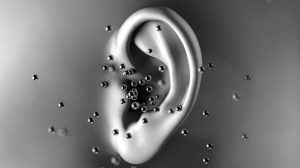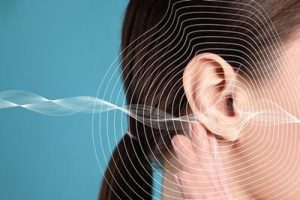Ring in the Good News: Tinnitus Breakthroughs!
For those who suffer from tinnitus, the constant ringing or buzzing in the ears can be a frustrating and distracting experience. However, recent breakthroughs in research and treatment have given hope to those who live with this condition. In this article, we will explore the latest developments in tinnitus treatments and how they are changing the lives of those affected.
Hear Ye, Hear Ye: New Tinnitus Treatments on the Horizon!
One of the most promising new treatments for tinnitus involves the use of neurostimulation. This technique involves applying a small electrical current to the nerves in the ears and brain, which can help to reduce the symptoms of tinnitus. While still in the early stages of development, studies have shown that neurostimulation can be an effective way to alleviate the ringing in the ears.
Another treatment that shows promise is called acoustic therapy. This involves using customized sound frequencies to help desensitize the brain to the ringing or buzzing sound of tinnitus. By retraining the brain to focus on different sounds, patients may be able to reduce the intensity and frequency of the ringing in their ears.
Some researchers are also looking into the potential benefits of new medications and supplements for tinnitus. While there is no cure for tinnitus, these treatments can help to manage the symptoms and improve quality of life for those affected.
Sound the Alarm: Promising Research on Tinnitus Relief!
The field of tinnitus research is constantly evolving, with new breakthroughs and discoveries being made all the time. One recent development involves the use of machine learning algorithms to identify patterns in brain activity that are associated with tinnitus. By analyzing these patterns, researchers may be able to develop more targeted treatments for the condition.
Other researchers are exploring the potential links between tinnitus and other health conditions, such as depression and anxiety. By understanding these connections, doctors may be able to provide more effective treatments for both tinnitus and its associated symptoms.
Finally, there is ongoing research into the underlying causes of tinnitus. While the exact mechanisms that cause tinnitus are not fully understood, advancements in genetics and neurobiology are shedding new light on the condition. By better understanding the root causes of tinnitus, researchers may be able to develop more effective treatments and ultimately find a cure.
Ring in the Good News: Tinnitus Breakthroughs!
While living with tinnitus can be challenging, the good news is that there are more treatment options available than ever before. With the promise of new breakthroughs on the horizon, the future is looking brighter for those who suffer from this condition. Whether through neurostimulation, acoustic therapy, or other treatments, tinnitus sufferers can find relief and renewed hope for a better quality of life.







Be First to Comment